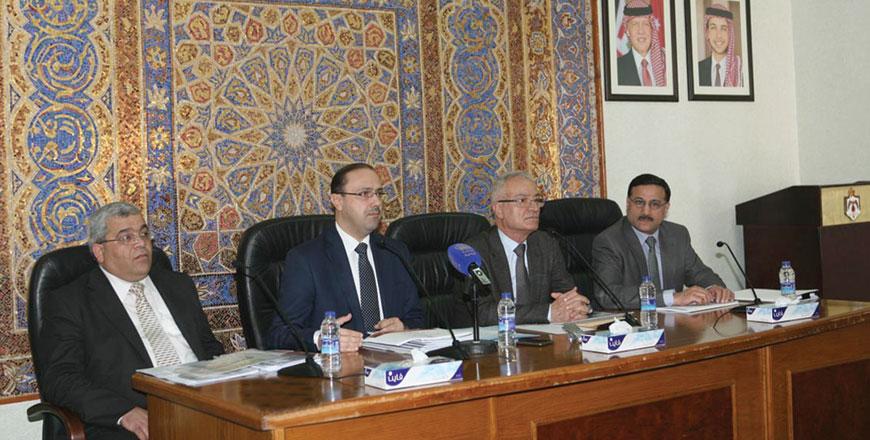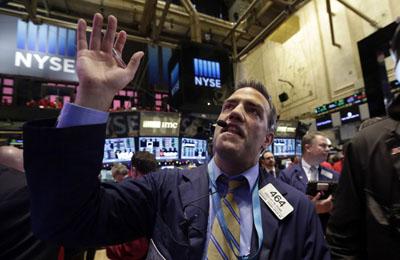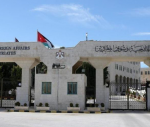You are here
2016 state budget built on GDP growth of 3.7%
By Omar Obeidat - Oct 24,2015 - Last updated at Oct 24,2015
AMMAN – The Kingdom's 2016 state budget would assume an average oil price of $60 per barrel and a gross domestic product growth rate of 3.7 per cent, according to the General Budget Department (GBD).
The budget bill of 2015 was planned on an average price of $100 a barrel for Brent crude, but for the period of 2016-2018 the spending bills would be based on $60 a barrel, according to a circular sent by Prime Minister Abdullah Ensour to budget planners.
GBD Director Mohammad Hazaimeh told The Jordan Times that the economic growth assumption for next year was put at 3.7 per cent, which is the same projection of the International Monetary Fund (IMF) and the World Bank.
For 2017 and 2018 the economy is expected to grow by 4.5 per cent, he said.
Regarding inflation in the 2016 spending bill, which is still in preparation, the GBD director said it is forecast to reach 3.1 per cent next year, 2.4 per cent in 2017 and 2.1 in 2018, adding that national exports are projected to grow by 5 per cent next year.
Imports are forecast to grow by 2.5 per cent in 2016.
On the size of the budget, Hazaimeh said the exact figure is still unclear as planners are still discussing the financial needs of government agencies, indicating that the main pillars of the budget are set to be finalised next month.
World Bank revises growth rate for 2015
In a report released recently by the World Bank on the Middle East and North Africa Economic Monitor –– titled: Inequalities, Uprisings and Conflict in the Arab World –– the global financial institution said Jordan’s economy is expected to slow down in 2015 and cut its growth forecast from 3.1 per cent to 2.5, building the forecast on the growth rate recorded in the first quarter, at 2 per cent.
Also this month, the IMF lowered its growth forecast of the Kingdom's economy to 2.9 per cent based on economic expansion achieved in the first quarter.
The bank also attributed the slowdown in economic activity to the effects of security spillovers from regional conflicts and a total shutdown of the trade routes with Syria and Iraq.
The slowdown to 2 per cent growth in the first quarter of 2015, which according to the report is the slowest since the third quarter of 2010, was led by a contraction in construction and “hotels and restaurants” sectors by 3.4 per cent and 6 per cent respectively, while the “mining and quarrying and agriculture” did better during the said period.
Related Articles
AMMAN – The government on Sunday unveiled what it described as a disciplined and growth-oriented budget bill for 2016 with an estimated spen
The continuing slide in oil prices may force budget planners to change key assumptions in next year’s government spending bill, which is currently under debate at the Lower House Finance Committee.
AMMAN – The European Bank for Reconstruction and Development (EBRD) on Thursday said it had downgraded its growth forecast for Jordan's econ

















